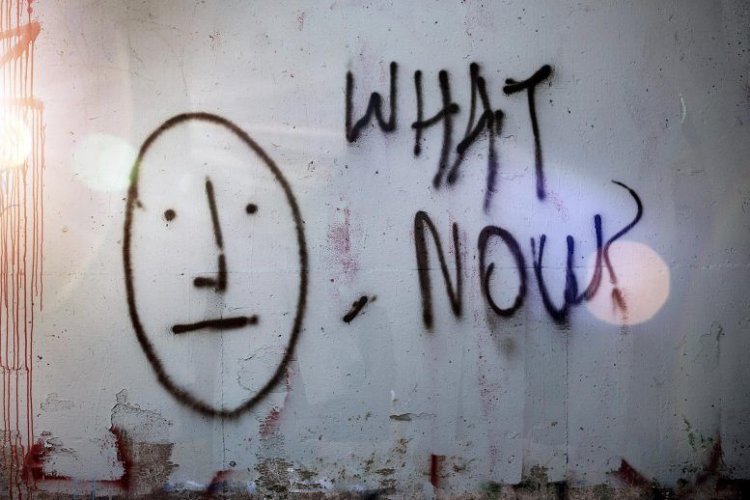Mental Health Expert Tips on Coping if Your Presidential Candidate Loses

Tips on Dealing With the Stress of a Divisive Election
The results of the presidential election will pack an emotional punch for those whose candidate didn’t win.
Northwestern University mental health experts Dr. Aderonke Pederson, a psychiatrist, and Alexandra Solomon, a psychologist, offered some tips for coping with your strong emotions as the results come in. It is important to take time to process what you are feeling, they said.
If your candidate loses
“If your candidate loses, it is important to take the time to grieve the loss. Ignoring our stress is not the best route,” said Dr. Pederson, an instructor of psychiatry and behavioral sciences at Northwestern University Feinberg School of Medicine. “Grief includes several stages, and it is OK to walk gently through the process, from the initial shock or denial to anger, and finally to acceptance and hopefully some level of peace.
“Be patient with yourself as you process the results of the election whether the results are finalized or not. Use your support system, avoid catastrophizing, avoid ‘all-or-nothing’ thinking. Instead, consider the positives and negatives of the situation, take stock of the positives, and remember to remain hopeful.”
If your candidate wins
“If your candidate wins, avoid shaming others who may have supported the opposing candidate,” Pederson said. “Give people who supported the opposing candidate space to process before bringing up the election with people you know may be struggling with the results.
“Ultimately if the hope is that people will come to see the world similar to ourselves, we will not achieve that by bullying or shaming others – think about the long term goals in your civic engagement, not just the immediate outcomes.”
‘Significant distress in the Black community’
Black Americans felt heightened stress during this election. About 70% of Black adults reported election stress in 2020 compared to 46% in 2016, Pederson said.
“As a psychiatrist, I see this trend in my clinic firsthand,” Pederson said. While a good number of my patients report election stress in general, the impact on my Black patients is more universal. Nearly all of my Black patients are on edge about this election and cite it as a source of significant distress.
“The first step in dealing with stress is identifying the source of your stress beyond the election itself. For some people, the underlying reasons causing stress range from concerns about health care and the economy to concerns about racism, social justice, fairness, and equity.”
A Trump win versus a Biden win
“If Trump wins a second term, it is vital for Trump-supporters to avoid gloating,” said Alexandra Solomon, a clinical assistant professor of psychology at Northwestern’s Weinberg College of Arts and Sciences and a staff therapist at The Family Institute. “The terror and anger that Biden supporters feel facing the prospect of four more years of this administration is real.
“If Biden wins, Trump supporters get to decide who they want to be in the wake of the news. Do you want to add to the division and rancor or do you want to be part of a healing process? For Biden supporters, this news may take a while to digest. Many people, especially those who occupy marginalized identities, have coped with the stress of the last four years with an uncomfortable blend of numbness and hypervigilance. Happy news therefore can evoke feelings of vulnerability because letting good news in requires us to let our guard down. A Biden win will take a bit of time to integrate.”
When and how to discuss results … or not
“Regardless of what side you are on, if the election is a significant source of stress for you, do not feel obligated to discuss the results in spaces that you feel are unsafe or unsupportive to you,” Pederson said. “Do the things that you know rejuvenate you, whether exercise or journaling or spending time with close friends or family and maintaining supportive spaces this week. Consider getting extra support from a mental health provider if you notice sleep disturbance, anxiety, or low mood that persists or starts to affect your daily functioning.”
Thinking beyond the election
“Regardless of who wins, you remain a part of the way forward in these challenging times with COVID-19 still present and the ongoing pandemic of racism,” Pederson said. “The World Health Organization has emphasized that there is no health without mental health. Your mental health is your biggest strategy in this time. Protect and guard it. Focus on the things you can control and avoid obsessing over things beyond your control.”
“We are experiencing tremendous levels of stress,” Solomon said. “Stress that lives in our bodies, our minds and in the space between us. It is important to practice self care by getting rest and fresh air and by reaching out to people for support. Because the health of our democracy rests upon ensuring that the vote count is accurate rather than fast, we must practice patience. Although our brains crave certainty and quick answers, we can boost our tolerance for the unknown by practicing distraction, connection, and self-care.”










